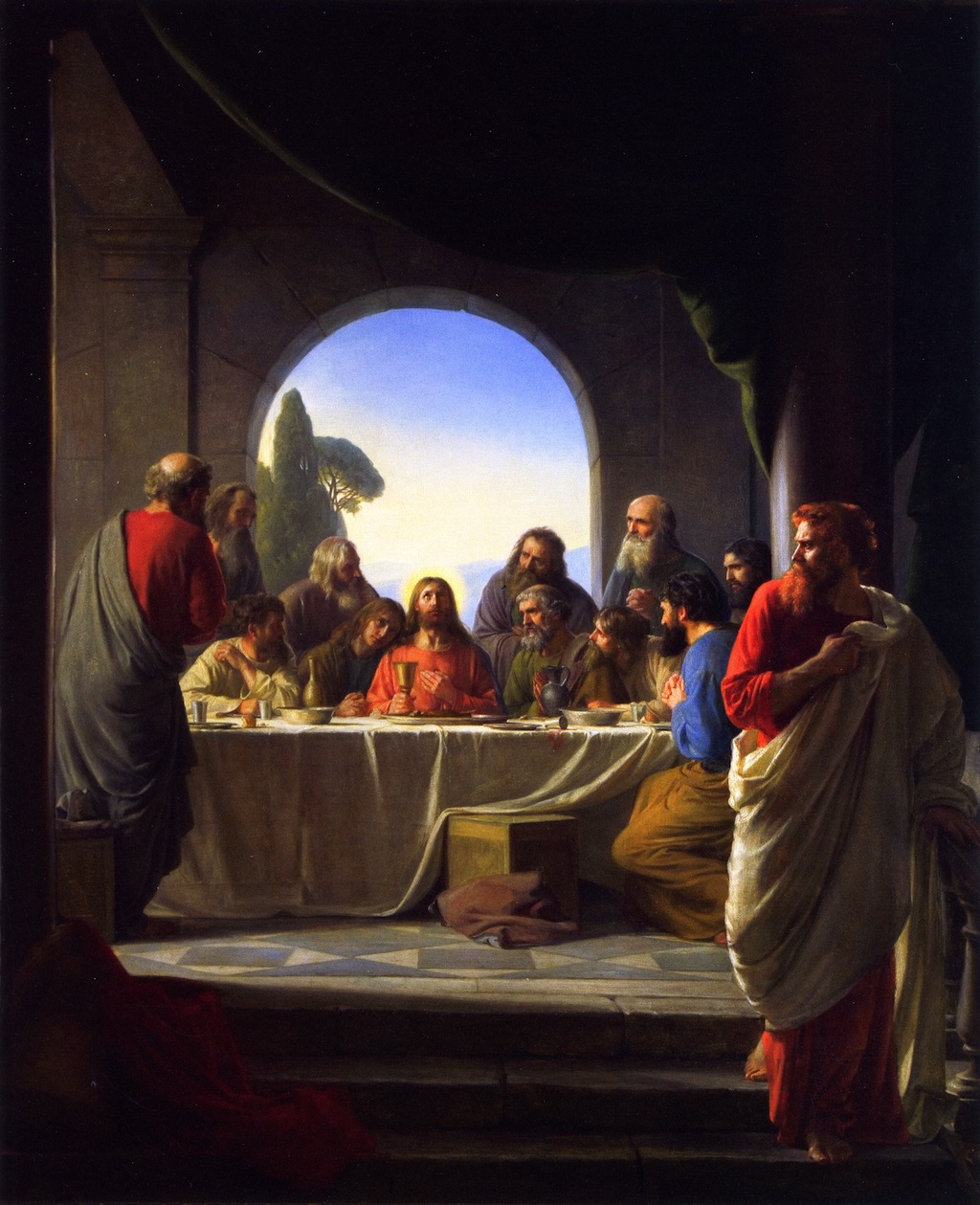Sermon - Maundy Thursday 2021
The yearly Passover meal for the Israelites was a memorial meal, by which they recalled God’s loving providence for them in sparing them from death and delivering them from bondage in Egypt. When they celebrated the Passover, the actual Passover wasn’t happening again, they weren’t reenacting the Passover, it was just a memorial. Many protestants view Communion the same way: just a memorial, a time to remember what Jesus sacrificed for us. But those protestants couldn’t be further from the truth.
There is some value in remembering what Jesus did for us, it’s good to ruminate and ponder the profound work of redemption Christ performed on our behalf. But remembering a past event pales in comparison to participating in the event itself! To make this abundantly clear, would you rather just remember a loved one or be with that loved one presently? Obviously being with the person is far better than just remembering the person.
So the Lord’s Supper is no mere memorial; we’re not just remembering what Jesus did for us. Rather we’re recipients of the true body and blood of Jesus, from Jesus Himself, who is here present! The pastor is but the mouthpiece, for it is Christ who speaks: “This is my body… this is my blood...given and shed for you for the forgiveness of sins.” The food given here is not just the fruit of wheat and grapes, but this food is the body and blood of Christ, and the fruit of this meal is the forgiveness of our sins.
We’re not just remembering a meal that our Lord ate with His apostles two millennia ago, but we join in the same meal with the apostles and all the saints gone before us. This meal spans across time and space, it bridges the gap between heaven and earth. We don’t just remember Jesus here, but Jesus joins us here and communes us together with all the church in Him.
Subsequently, in a memorial meal, the meal is just plain food, and the important thing is what kinds of memories you can recall. But in the Lord’s Supper, we receive a great deal more than memories! Jesus describes His supper in terms of a last will and testament, and thus what we receive here in the Supper is the inheritance.
Many people get quite excited about inheriting their family treasures. It can be a big deal to inherit the family farm, or receive the family heirlooms like jewelry and furniture, or just receive buckets of cash. But in the Sacrament of the Altar, God isn’t giving us anything so petty. In the Lord’s Supper we’re not just inheriting something so lousy as acres of land, diamonds, gold, and wads of cash, but God gives us that which is most valuable: Himself! “This is my body, which is for you.”
Here at the altar, where Christ feeds us His body and blood, He feeds us the same body that hung upon Golgotha and the same blood that trickled to the ground. The very same body and blood which atones for our sins is fed to us here. Here in this sacrament we are the heirs of the greatest treasure in the universe, the most precious tokens which grant us life. God doesn’t hold anything back, but here He gives us more than we could ever dream: God Himself is the inheritance.
So for us Christians, this Supper is the greatest event we can participate in on this side of eternity. Right before Jesus was arrested, killed, resurrected, and ascended to heaven, He gave Himself to His church so that He would always be bodily present with us. The angel said that He would be called “Immanuel,” which means “God with us,” and so He is. For two millenia Christians have flocked to the sacrament for strength and consolation amidst this sad world.
When war, famine, death, and pestilence strikes, Christians flock to the sacrament. When life seems desperate, Christians cling to the sacrament because God Himself is there in the flesh and unites Himself with Christians to give them His strength. When trouble strikes, Christians flee to the sacrament to receive God’s body placed upon their tongues and His blood flowing from the chalice. Because in this evil world, God is with us and for us here in His supper.
God loves His people and cares for them with His own body. He consoles us in sorrow, strengthens us in frailty, and in all things builds us up in Him. So here we also see who this supper is for and who is well prepared to receive it worthily. Namely, if you find yourself weak in faith, cold in love, faint in hope, inclined to sin, and yet eager to be strong in faith, fervent in love, powerful in hope, and free from sin, then you’re equipped for this meal.
The more you hunger and thirst for righteousness, the more this meal is for you. This heavenly food is for the hungry souls. If you imagine yourself already full and strong, then this meal is not for you. “He has filled the hungry with good things, and the rich He has sent empty away.” But for us who are weak and poor, pitiful and frightened, sinful and sick, God bids us come.

Comments
Post a Comment